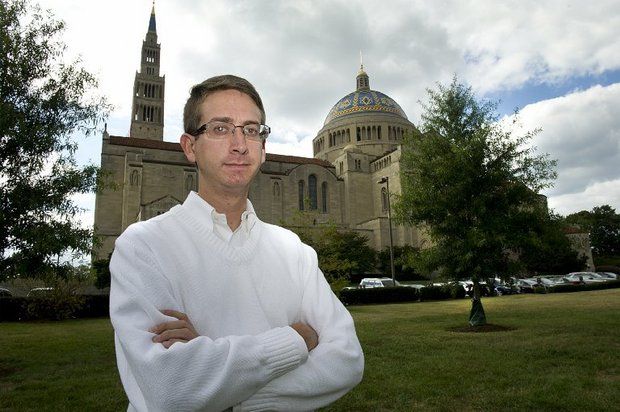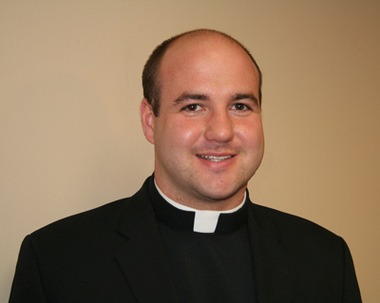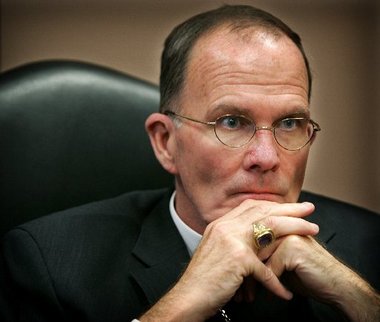Opinion: I Exposed Priest in Sexting Sting. Now Church Must Reform.
By Tim Schmalz
Two months ago, news broke that a priest in the Diocese of Trenton had been exchanging sexually charged text messages with someone he thought was a 16-year-old boy. I was that fictitious boy.
Matthew Riedlinger was an assistant pastor at St. Aloysius Church in Jackson. In 2011, I and another Catholic University of America student complained to Trenton Bishop David M. O’Connell that Riedlinger had sexually harassed us and other young men repeatedly for years. In the summer of 2012, we posed as a 16-year-old boy on Facebook and set up a sting. Within two weeks of the first contact, Riedlinger talked about pornography, mutual masturbation and sexual encounters. And, he wanted to meet “me.” In August 2012, we gave transcripts of the conversations to O’Connell, who removed Riedlinger from the parish, but the bishop did not tell parishioners of the allegations against Riedlinger for more than a year — until Sept. 21, after being told The Star-Ledger would be publishing a story on the scandal. O’Connell’s refusal to inform the public of that disgusting matter kept a sexually misguided man active among children. The Catholic Church in America unanimously promulgated the so-called Dallas Charter in 2002, a document addressing the sex abuse scandal. It intends to prevent abuse scandals from happening before bad comes to worse. O’Connell seems to think that action should be taken only after an incident occurs. I believe this is why O’Connell is constantly babbling about nothing really happening. But that is just the point of the Dallas Charter. Riedlinger thought he was talking to a minor. That’s clear intent on his part, and it doesn’t matter whether an actual, physical minor was at the other end of the line. How did O’Connell not make the connection that, if Riedlinger willingly shared details about his genitals with an apparent 16-year-old, he might have also had similar conversations with real children? It doesn’t take a pontifical degree to see the high probability. The people deserved to know. Why did O’Connell deliberately withhold this information from parents whose children had close contact with Riedlinger and who may have fallen victim to his manipulation? Parents should have been notified so that they could have discussed the matter with their children, who now, because of O’Connell’s imprudence, may have been too ashamed for up to three years to seek the help they so desperately deserve. In an October news release, O’Connell defended his silence, saying he was “restricted in what I could say at the time due to privacy constraints.” What changed to allow O’Connell to breach Riedlinger’s privacy? In a September news release, O’Connell wrote that Riedlinger was the subject of only two complaints over the years — October 2011 and August 2012. If no further complaints had been made, why did O’Connell make a sudden U-turn? Nothing had changed. Had The Star-Ledger article not been published, one wonders if O’Connell would have ever told the parish. For more than two years the victims pursued every available channel provided by the church, appealing incessantly to O’Connell and his staff, which resulted only in unexplained silence and dismissal. Do they not realize how this treatment affects victims? Victims come to believe that the church protects only its own. They learn to see the double standard between what the church preaches from pulpits and the evil that is perpetuated by its agents.
For victims, the church is no sanctuary. Victims seek psychological counseling, trying to make some sense of the discrepancy between standing up for what is right and true and the utter lack of responsible action from O’Connell and his ilk. Yet, they remain feeling helpless and marginalized, hopeless and in immeasurable pain. This is the church’s problem. Removing Riedlinger was a necessary and long-overdue step, but Riedlinger alone was not the problem. For years O’Connell knew about Riedlinger’s dangerous behavior, yet he remained silent, secretly hoping a scandal would not erupt in his diocese. His inaction neglected the dire emotional state and spiritual collapse of Riedlinger’s victims, and endangered children. How on Earth does the church expect to retain membership and promote the faith when its clergy so vilely seek to cover up such matters internally, careful to avoid public scrutiny and often keeping victims at risk? Victims were harmed not only by Riedlinger, but also by O’Connell and his cruelly deceptive church. The church must treat victims as victims. O’Connell’s secretive, self-serving church must come to an immediate, final end. Tim Schmalz is a Howell native and Catholic University of America graduate now studying at Georgetown University’s Edmund A. Walsh School of Foreign Service.
|
.
Any original material on these pages is copyright © BishopAccountability.org 2004. Reproduce freely with attribution.


